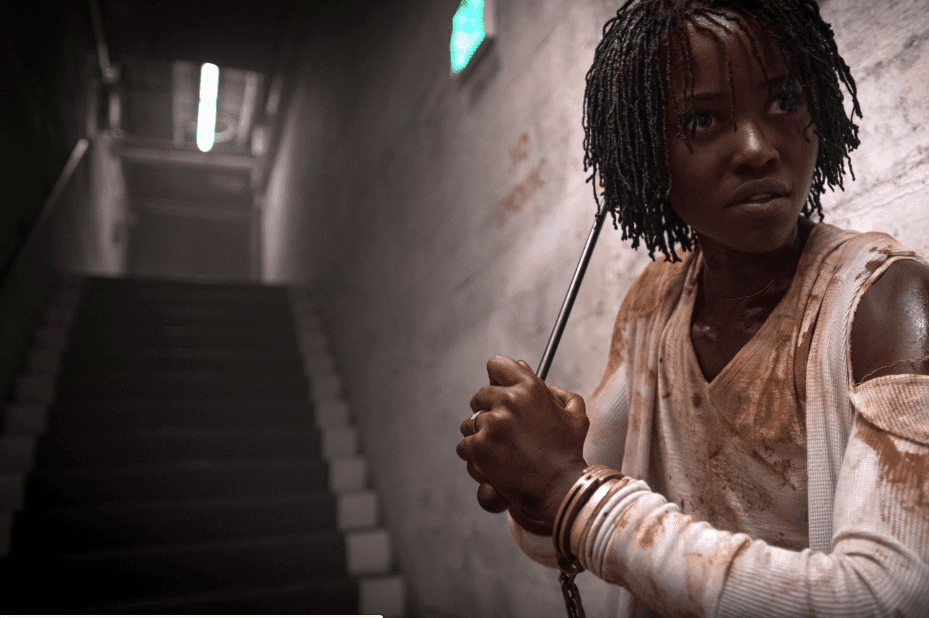
I’m not here to discuss the racial politics of Us, Jordan Peele’s follow-up to Get Out. There is a conversation to be had but not now. The most important/immediate takeaway is that Peele has crafted a horror movie in which a black family can simply exist. It draws influence from classic home invasion films like Funny Games and blows it to biblical-level proportions — making a deliberate push to be an inclusive experience and is a flat-out monument. Us doesn’t live in a vacuum but even on its own, Peele has delivered another cultural icon.
I dare say this is an instant classic. To what level is it in comparison to Get Out? That’s to be determined, but I’ll hazard a guess that it won’t be as impactful for the exact reason first mentioned. It doesn’t completely dive into a race war. Moreover, Peele has his sights on a nationwide event (a DIY mini-apocalypse) using one family as its delivery system whereas Get Out flowed through a single household with one charismatic lead.
Us branches out and to continue the comparisons with Peele’s only other film in his catalog is unjust.
One of the film’s strongest selling points is its high concept. A family goes to a beach house and at night, an identical family dressed in red robs wielding golden scissors shows up at the doorstep. Soon after, it’s a fight for life. I don’t say life or death because there’s an important distinction.
The doppelgänger family, which the leader refers to as shadows physically tethered to the real family, reveals her jealousy of the world above as her family dwells in a secret tunnel system underground. They’re in search for a life above. Killing the first family is the solution, but the Twilight Zone family is already virtually dead, simply going through the motions unable to have a life separate from their carbon copy above. When asked who they are, the additional response to being shadows is “Americans” — read into that what you will.
Once the fighting begins in the second act — barely taking a breath until the last scene — Us turns into a strong showcase for what Peele could do with an action thriller. The editing and pacing are so frenetic with everything lined up to perfection. It’s a masterclass of blocking but moreover, he continues to show his roots — combining genres to the point where there’s no distinction where the horror begins and the comedy ends. Mix in more than a dash of psycho-thriller and action film, this should not work, but it’s all effortlessly blended together. Peele pieces it together with editor Nicholas Monsour, leaving virtually all the violence off-screen for the psychological effects to set in while Michael Abels original score brings each scene to new heights in Hans Zimmer fashion.
But more than anyone, the cast has to be praised for getting the tone right. The principal cast is on double-duty here playing physically identical characters. Emotionally and spiritually, the shadows are unique people with different desires and motivation driven by a bottomless sorrow. Lupita Nyong’o exits with the most likely performance to catch favor come awards season just as Daniel Kaluuya in Get Out, and deservedly so. She plays two entirely different mothers with equal fervor and sympathy, and again, shows potential as an action star with an infectious physical performance.
Meanwhile, Winston Duke of Black Panther fame will capture the hearts of the nation as the goofy dad who’s always looking for a laugh. To his family, his performance is tiresome, but Duke never misses a beat and miraculously elevates dad jokes. And this would not be complete without the kids of the family played by Shahadi Wright-Joseph and Evan Alex, each playing kids with some snark — but as shadows, are speechless relying on physical performance alone. They all pull off the dual-identity with impressive results, rounded out with a supporting cast of Elisabeth Moss and Tim Heidecker as the annoying neighbors with twin teenagers that rival The Shining pair.
Peele occasionally loses control of the narrative as the reveals add up but in the end, those are simple afterthoughts because the rest of the ambition is so well-maintained all built on the foundation of our greatest threat to us isn’t racism or international terrorism, but ourselves — us. Jeremiah 11:11 is referenced a couple of times, and while not the key to the movie, it unlocks more nuance about a disaster out of our control, one which no mercy will be shown for the lives lived that break the covenant.
Us is an ultimate reckoning and Peele is bold enough to turn the screws, not just on one class but everyone. To say it cuts deep would be an understatement.
Rating: 8.5 out of 10


I want to see it now!!